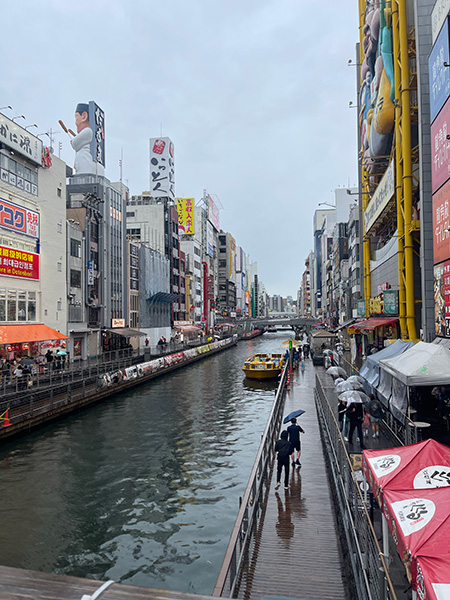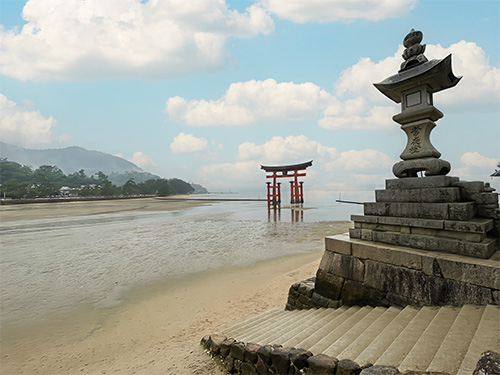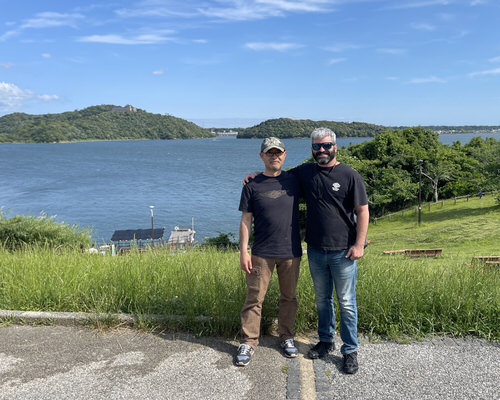A Month in Japan, a lifetime of Lessons
Story and Photography by Noah Allen
Appeared in Cityview Magazine, Vol. 41, Issue 6 (Nov/Dec 2025)
From bullet trains to temple bells, one East Tennessean discovers that Japan’s greatest beauty isn’t in its landscapes—but in the kindness of its people.
When I stepped off the plane in Tokyo on May 7, I was hit with a mix of excitement and uncertainty. The signs around me were in characters I couldn’t read, the voices in a language I couldn’t follow. I felt the weight of being somewhere completely unfamiliar. For a moment, I wondered how on earth I was going to make it through a month here.
But then something remarkable happened: people noticed me struggling and helped. Total strangers stopped to point me in the right direction or explain which train I needed to catch. It set the tone for the entire trip. From the very first day, I realized Japan is not only safe—it’s incredibly hospitable.
Learning the Rhythm of the City
The first order of business was navigating Tokyo’s trains. I picked up an IC card—a little pass that works like magic through turnstiles—and leaned heavily on Google Maps. The trains were fast, clean, and punctual, but at first, they were also a maze. Still, it didn’t take long before I found myself appreciating the rhythm of the city.

And food—oh, the food! Fresh sashimi that melted in my mouth, wagyu beef that lived up to every bit of its reputation, even a traditional eel dish in a rural town that quickly became one of my favorite meals. Every bite seemed to carry centuries of care.
Work with a Deeper Meaning
I was in Japan for my job at DENSO, where I lead a line producing advanced driver assistance systems. This trip was about training—learning a new product line that will eventually come to Maryville, Tennessee.
But in Japan, even work carried a sense of tradition. At the start of our project, we painted one eye on a Daruma doll. In Japanese culture, the other eye remains blank until the project is finished. When we finally complete the work, we’ll fill it in. It was a small ritual, but it gave me a sense that our efforts were part of something bigger—something meant to be seen through with focus and determination.
The Good Ole Tennessee Bar in Tokyo

On my very first night, I stumbled into a place that felt strangely like home: a little one-man bar called The Good Ole Tennessee Bar, run by Yoshi—this one a University of Tennessee graduate from the early ’90s. His bar was plastered with Vols memorabilia, Titans gear, and Southern charm.
What struck me was how he turned his love of Tennessee into a haven for travelers. That night, over drinks, he gave me a crash course in “survival Japanese”—simple phrases and gestures that ended up helping me the entire month. I walked out feeling like I’d already made a friend, halfway across the world, bound by orange and white.
The Heart of Hiroshima
One of the most powerful experiences of my life happened in Hiroshima. I wasn’t sure what to expect walking into the Peace Memorial Museum. Outside, the city buzzed like any other—people laughing, traffic moving, voices carrying across streets. But the moment I stepped inside, silence wrapped around me.

The famous Itsukushima Shrine’s “floating” torii gate on Miyajima Island (also called Itsukushima), near Hiroshima.
It was almost unbearable at times—the weight of the stories, the photographs, the remnants of a day that forever changed history. Yet what struck me most was the way Japan has chosen to remember: not with anger, but with a message of peace. Standing there, I couldn’t help but feel humbled, reminded that our world can’t afford to forget what unchecked war can do.
Finding Peace on an Island
If Hiroshima held my most emotional memory, Miyajima Island gave me my most peaceful one. Just off the coast, it’s famous for the great torii gate that appears to float on water during high tide. I hiked trails shaded by towering trees, visited ancient temples, and even watched deer wander freely through town as if they owned the place.

Yoshi Momoki & Noah Allen on Miyajima Island (also known as Itsukushima)
in Hiroshima Prefecture
There was something grounding about being there. It slowed me down, pulled me out of the noise of travel and work, and reminded me how deeply Japan treasures its history and spirituality.
As I moved through both Buddhist and Shinto temples across the country, I felt the depth of tradition in every step. The stillness, the incense, the meticulous upkeep of centuries-old structures—it all spoke to a culture that refuses to forget where it came from. Those moments of quiet reflection in temples were some of the most meaningful of my trip, leaving me with a sense of reverence for beliefs and practices that, while not my own, connected me to something timeless.
Unexpected Friendships
Work trips are usually about colleagues, but Japan gave me more than that—it gave me friends. My translator, Yoshi, is a Harley guy. Yes, in Japan.
He rebuilds and races motorcycles, and when he found out I loved bikes too, he took me to a Harley shop. I couldn’t believe the sight—old knuckles and panheads, polished and roaring to life, cherished just as much as they are back home. We didn’t ride this time, but next trip, we’re planning a motorcycle adventure.
Another colleague, Tsuda-san, invited me to a traditional pottery workshop. I tried my hand at making beer glasses, which are still curing in a kiln. He promised to bring them to me when they’re ready. That gesture—a piece of Japan, made with my own hands, brought back by a friend—might be one of the most meaningful souvenirs I’ve ever had.
Lessons I’ll Keep
Looking back, what stays with me isn’t just the food or the sights or even the work. It’s the feeling of being welcomed into a culture so different yet so full of warmth. It’s the silence of Hiroshima, the glow of lanterns in Kyoto, the laughter in a Tennessee-themed bar in Tokyo where a UT graduate named Yoshi taught me survival Japanese phrases over a beer.
I left Japan with new skills for my job, yes—but more than that, I left with a deeper appreciation for history, for peace, for craftsmanship, and for the simple connections we make when we open ourselves up to people.
Next time, I’ll stay longer. Next time, I’ll ride those motorcycles. But even if I never return, a part of me will always carry Japan with me.

Comments are closed.